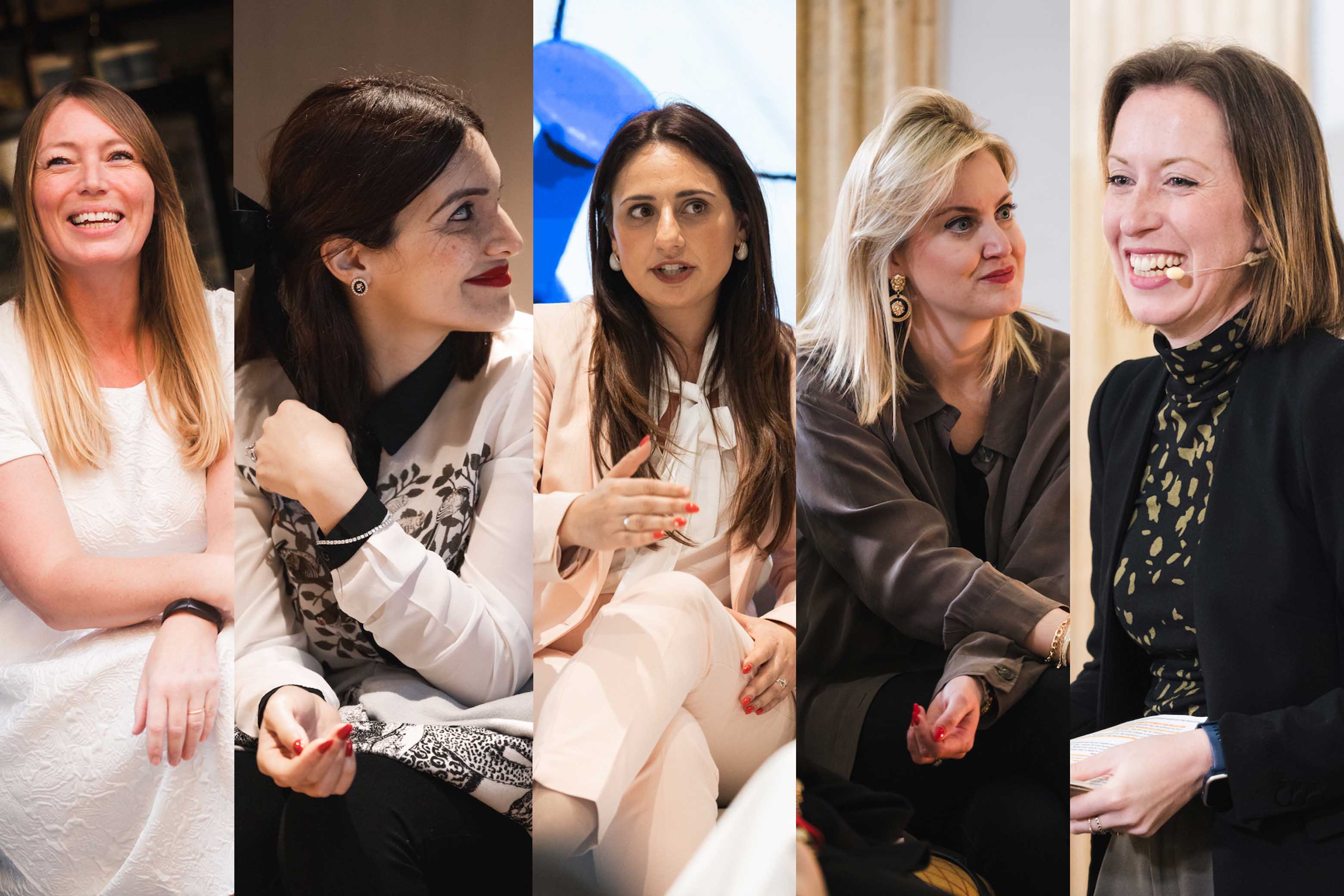
26 Jun So you want to know the truth about Public Speaking?
Written by Prabjit Chohan-Patel
Hey you…yes YOU! Do you ever get the feeling that while your professional life is going well, there’s something more you could be doing for your development…like putting yourself out there with public speaking to present your knowledge, experiences, ideas or services?
But does out there in the big scary world (or so you imagine) simply seem too daunting? Maybe because:
> You’re confident in small groups but terrified of presenting to a room of faces staring back at you?
> You’re unsure about your ‘right’ to take up space?
> The thought of facing a difficult or disengaged audience literally makes you feel sick?
> You’ve convinced yourself you don’t have anything interesting/useful to share with others?
If any of this sounds eerily familiar, this blog piece should hopefully chase these fears away and move you closer to standing up and claiming your spot – in the actually not so scary world – as a speaker!
So, read on for our Grade A compilation of insightful, practical, ‘lived’ advice on public speaking, from some of SHE Malta community members:
Anthea Huber (Head of Design and Partner at Archi+), Donha Muscat (Founder and Director at St Paul’s Childcare and Pre-learning Centre and St Paul’s Institute), Giannella Barbieri (Managing Partner at GB Legal), Mette Lorenzen (Founder and Owner of Mettelina Cupcakes) and Tara Alvarez Garcia (Founder and Coach at TYS Coaching).

First, we wanted to know everyone’s most crucial advice for those who want – but are hesitant – to become more visible. All five women agree, confidence builds through action, not the other way round. Don’t worry about presenting flawlessly, feeling ready or being qualified enough because as Anthea says, “that moment may never come. Even if your voice shakes or you don’t express your thoughts brilliantly, just showing up is what matters”. “Start before you feel ready and trust that your voice is not only valid but needed,” Donha concurs.
“Visibility doesn’t begin on stage,” Tara adds. “You don’t need a spotlight to start – just ownership and intention.” Describing visibility as a skill that develops gradually, rather than an innate personality trait, she recommends starting with “low-stakes opportunities that don’t stretch or paralyse you” (speaking in meetings, practising with a peer or sharing a simple insight on LinkedIn). “And don’t confuse fear with inability,” she warns.
Mette emphasises the importance of focusing on what you can control – your mindset, preparation, and purpose – instead of other people’s reactions. “While feedback is valuable, fear of judgement shouldn’t hold you back from contributing. Visibility builds with consistency and mindfulness; if you know your ‘why’, don’t hold back, voice it!” she urges. Echoing this, Giannella raises the issue of generational conditioning, “many women growing up in the 80’s/90’s internalised the idea that staying small and quiet was safer to avoid judgement. But the shift comes from owning yourself, not waiting for permission or validation. Stand firmly in who you are and what you bring to the table,” she advises.
In short, visibility is a question of action, ownership and purposefulness, not waiting to be perfect.
As for common misconceptions about public speaking (versus the reality!), one of the biggest myths is that public speaking involves a five star performance to avoid the audience’s judgement. But Tara explains that people aren’t looking for this, they’re looking for presence, “if you focus on expressing your values and experience (recovering calmly if you go off tangent), you’re leading, not surviving a performance.” Donha reminds us, “substance and sincerity matter more than style – you don’t need to act to connect. Preparation, self-awareness and understanding your audience are what truly elevate a talk. While theory and research add weight, the personal lens you bring leaves a lasting impression.”
Interestingly, Mette observes “the most memorable moments often come from speaking from the heart, rather than perfectly presented slides.” Giannella agrees, “sharing thoughts or experiences openly doesn’t make a presenter look weak, it makes them relatable – and when people relate, they listen.”
Another fascinating assumption is that great public speakers are naturally charismatic, extroverted or loud. As Anthea reveals, this is far from true. Describing herself as the biggest introvert, she points out that experienced speakers still feel nervous or unsure before stepping up. “It’s not a matter of possessing bulletproof confidence but of “being clear on why you’re speaking and who you’re speaking for.”
In short, audiences respond to authenticity and connection more than a slick, rehearsed performance.
Wanting to know even more about our contributors’ specific experiences, we asked:
Giannella
What advice would you give someone delivering their very first presentation to a group? Treat it like a regular conversation with people who’ll benefit from your knowledge and experiences – or even a talk with your younger self. Think about what you’re giving, not how you’re coming across; it diffuses nervousness and makes you more present. Imposter syndrome is more often a sign you’re stretching into something meaningful, rather than not belonging. So don’t fight it. Acknowledge it, then keep going!
Do you practise your talks aloud beforehand? Not really. I know this goes against the common advice but I once rehearsed a presentation so much, it ended up stilted and I could sense the audience losing interest. Since then, I’ve adopted a more conversational approach, mapping out key points, being clear on how I want to start, and then letting the rest flow naturally. If the topic’s technical, I obviously do my research but still aim to speak to people rather than at them.
Mette
Can you share a specific moment where something didn’t go to plan – and how you handled it? During my first big company speech (streamed to 2000 viewers!), everything seemed to go wrong. I dropped my notes, forgot my lines and left the stage thinking I’d failed! But afterwards, I received incredibly positive feedback, reminding me that being genuine is more important than being flawless. Another time, I totally blanked during a presentation and admitted it. The audience was so empathetic and supportive, I ended up delivering an impromptu talk on teamwork and support—ironically, a better fit than my original script.
What’s a memorable piece of feedback you received after a talk – and how did it shape your approach going forward? I once shared my personal journey at a newcomer’s orientation. It resonated so well that I mostly replaced slides with storytelling from that point. A young manager also revealed that she appreciated how a senior company member like myself openly admitted to not understanding something in a meeting. It made me realise that showing vulnerability can be powerful in creating a culture where it’s okay not to have all the answers.
Anthea
What’s one lesson about public speaking or presenting that you wish someone had told you before your first talk? I wish I’d known you don’t need to fill every minute or memorise every word. It’s actually okay to pause, breathe…even admit to losing your place. When audiences sense your humanness, they’re usually more forgiving and even rooting for you; people tend to remember how you made them feel, not the mistakes you made.
How do you adapt your delivery style for:
i) corporate audiences and casual settings? Keeping things structured with clear slides, defined points and concise language helps keep me on track with formal audiences – but I still try to keep it warm and approachable. In casual or community-based settings, I switch to a more conversational style, using storytelling and inviting some interaction for a more relaxed feel.
ii) scenarios outside your comfort zone? I remind myself that I’m not there to dazzle but to interact and contribute. If I’m honest, I usually end up slightly breathless from nerves and don’t exactly ‘lean into it’ but try to get through it as best I can! Mind you, the feedback afterward is almost always better than I thought I sounded in the moment, which is a relief!
Donha
Do you have any practical tips for structuring a talk or workshop so that it lands well and leaves a lasting impression? As a doctoral candidate and speaker in academic and professional forums, I’ve learned the importance of clarity and connection. I structure my talks around three pillars: context, content and call to action. First, I establish the real-life relevance of the topic. Then I share evidence-based insights and conclude with reflective prompts or next steps. Bringing in personal narratives and my research lend authenticity and credibility respectively. I also make space for discussion to encourage engagement, because constructing knowledge together helps the key messages ‘land’ more meaningfully and memorably.
Does a specific speaking engagement/workshop you delivered stand out in your memory and why? Speaking at an educational leadership event on early childhood development was a standout moment. I’d prepared thoroughly but soon realised the audience was more receptive to a conversational, story-led approach over a highly structured presentation. So I adapted my delivery, sharing personal experiences as a childcare founder and doctoral researcher. The atmosphere shifted leading to more engagement and meaningful dialogue. It reminded me that effective speaking is more about interaction than presenting. The feedback confirmed how valuable storytelling is in bridging the gap between research, policy, and practice.
Tara
What do you focus on during a presentation to maintain your composure, confidence and connection with your audience? Despite years of experience, I still get nervous. But I’ve reframed this as a sign that I care and use this as ‘fuel’ for my talk. Clarity is grounding. I ask myself who the audience is and what I want them to walk away with? Without those answers, real connection is just guesswork. I usually arrive early, get a feel for the space, tune into what’s already been said or link to something timely. I prepare meaningfully (no memorised scripts): strong opening, key messages, clear close. Staying in the moment and being responsive to who’s in front of me, keeping eye contact, referencing someone in the room, treating the audience like colleagues, avoiding jargon or ‘polished stage voice’ – just clear, honest communication. When you show up confident, human and prepared, people listen.
Do you consciously use storytelling and personal examples in your presentations. If so how and what benefits does this bring? Storytelling is absolutely how I engage, but not every story is planned. I prepare some examples but also leave space for live stories to emerge that resonate and stick in people’s minds long after the presentation. Stories create emotional safety, give permission and prove you don’t have to be perfect to lead, just real – vulnerability isn’t about oversharing, it’s about relevance. I share lived experiences, not impersonal Google results; the rocky starts, the slow climbs, the times I’ve got it wrong. Because when you speak from experience, people don’t just hear you, they trust you.
_____
And there you have it: motivation, mentoring and some good old myth-busting on connection and confidence, in-the-moment awareness, and resilience amidst discomfort. Hopefully, these nuggets of wisdom about what actually makes an effective public speaker will help you move the needle forward in your professional – or even personal life.
Now go find your nearest podium!


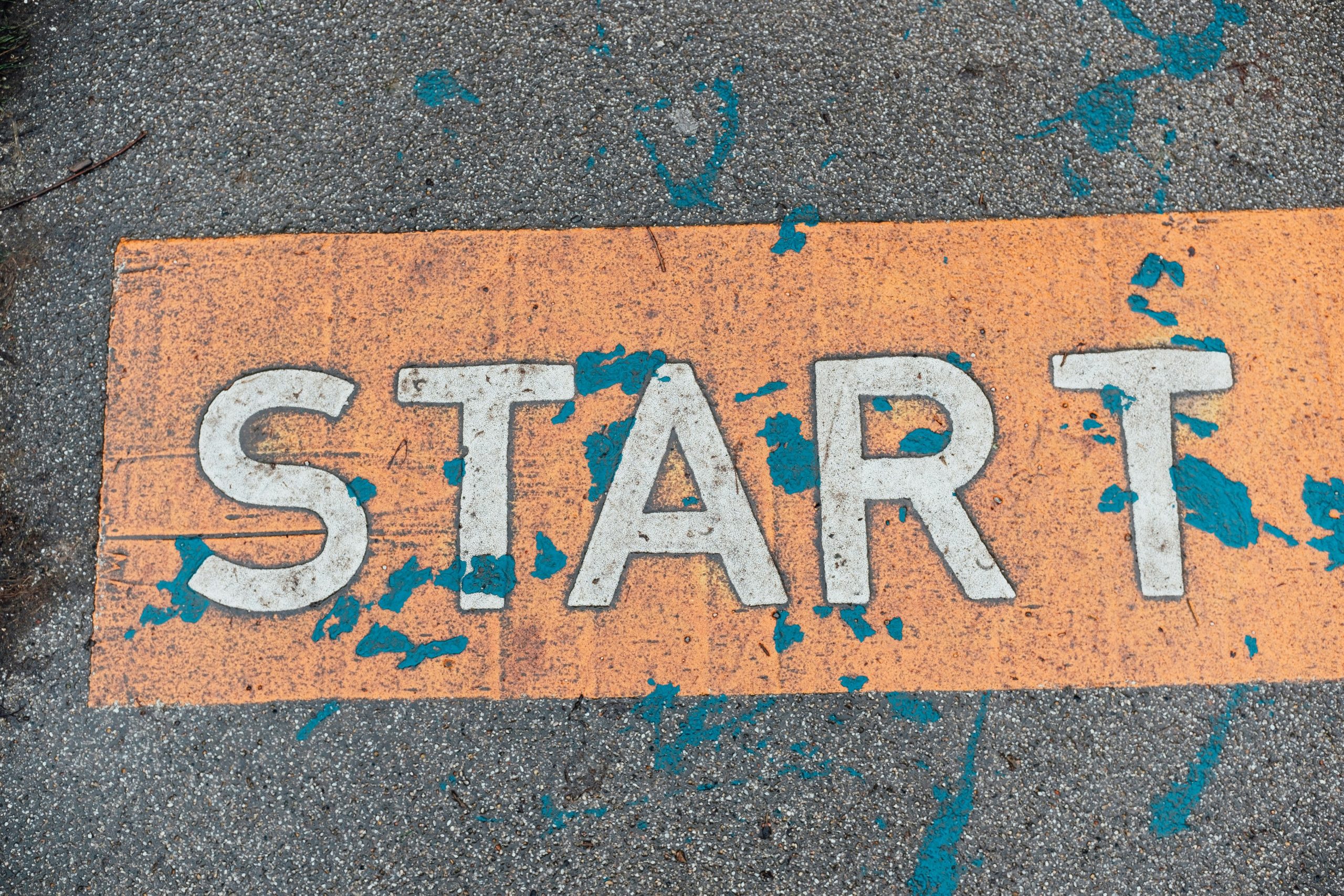
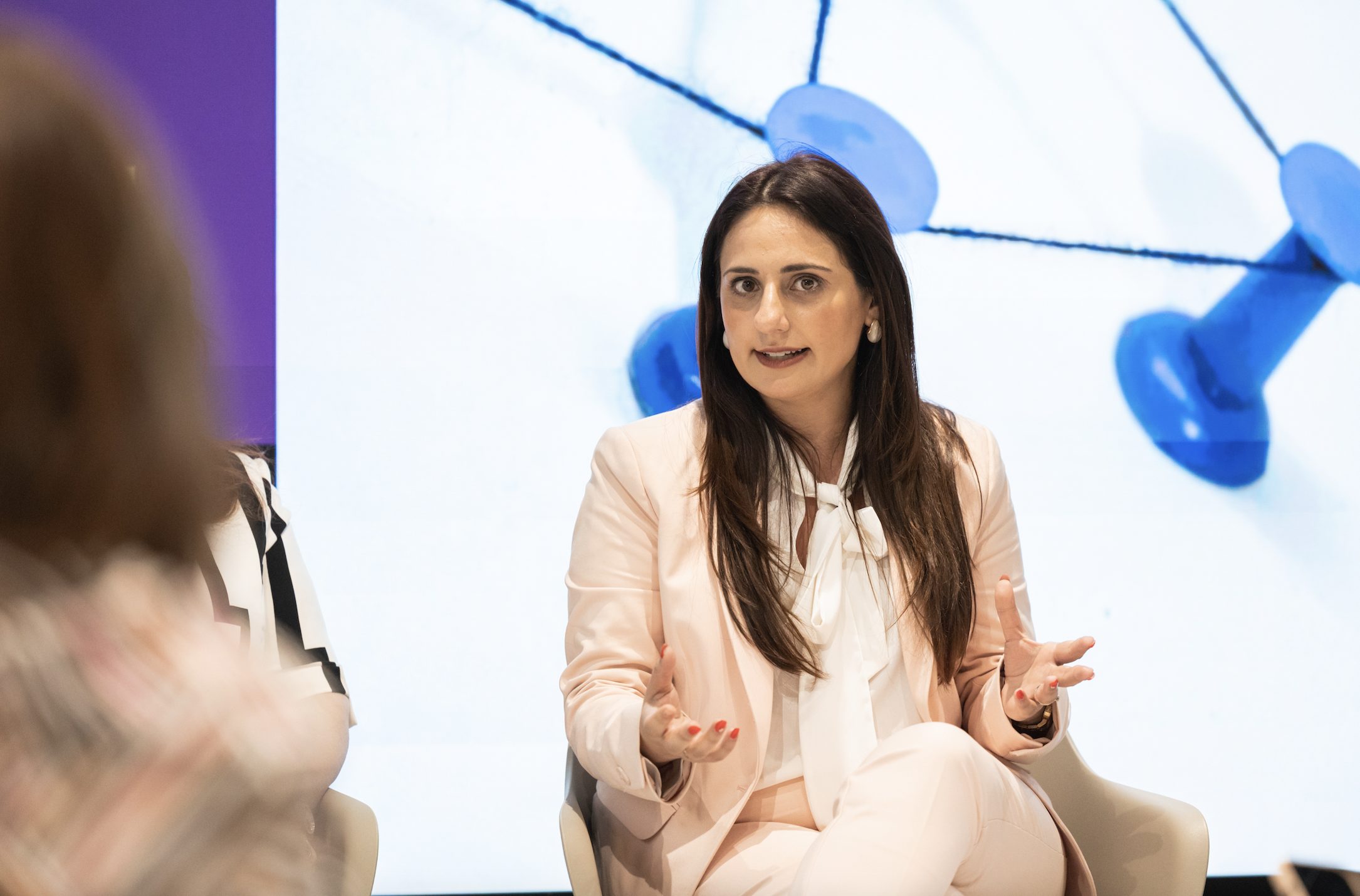
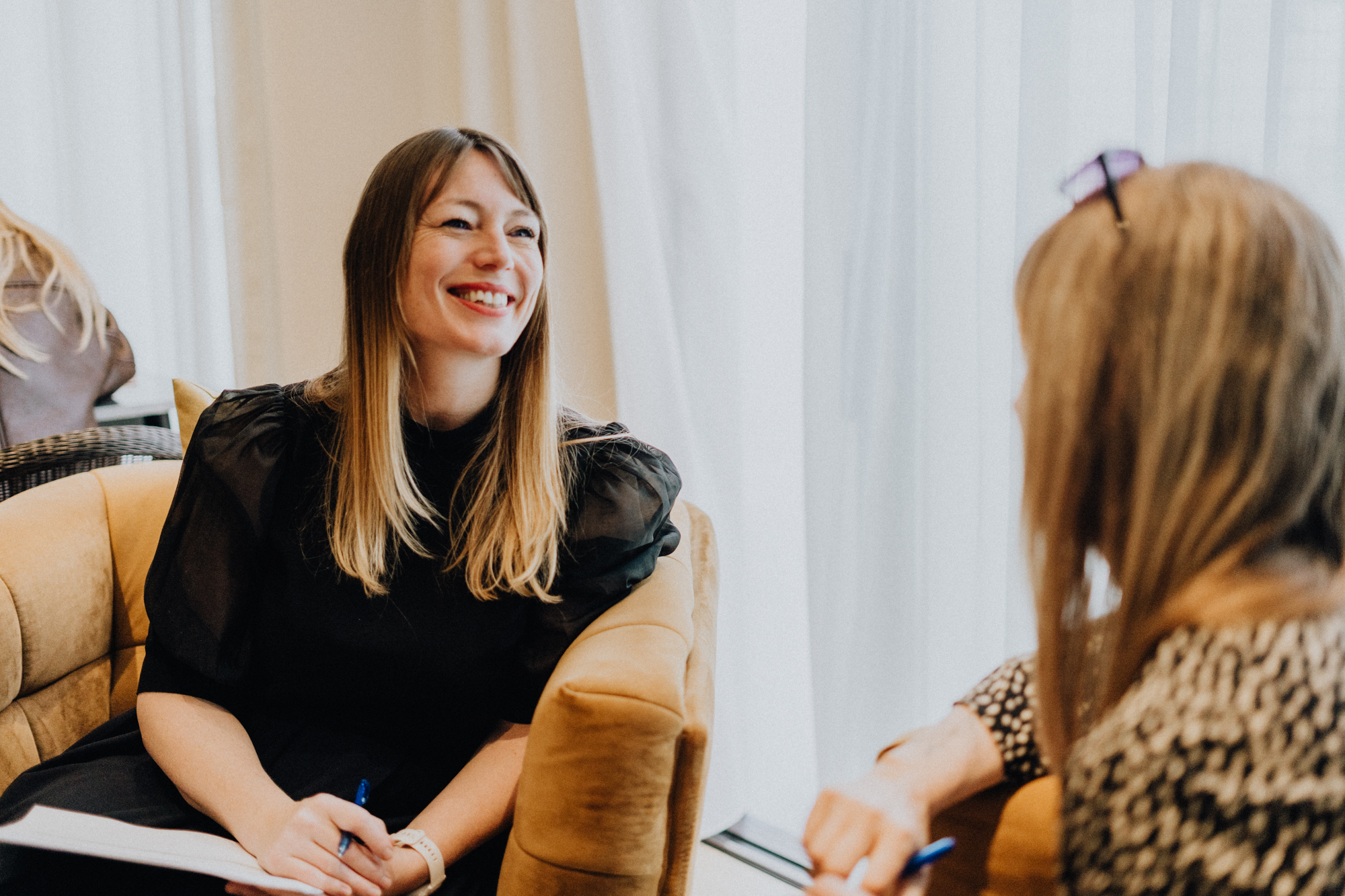
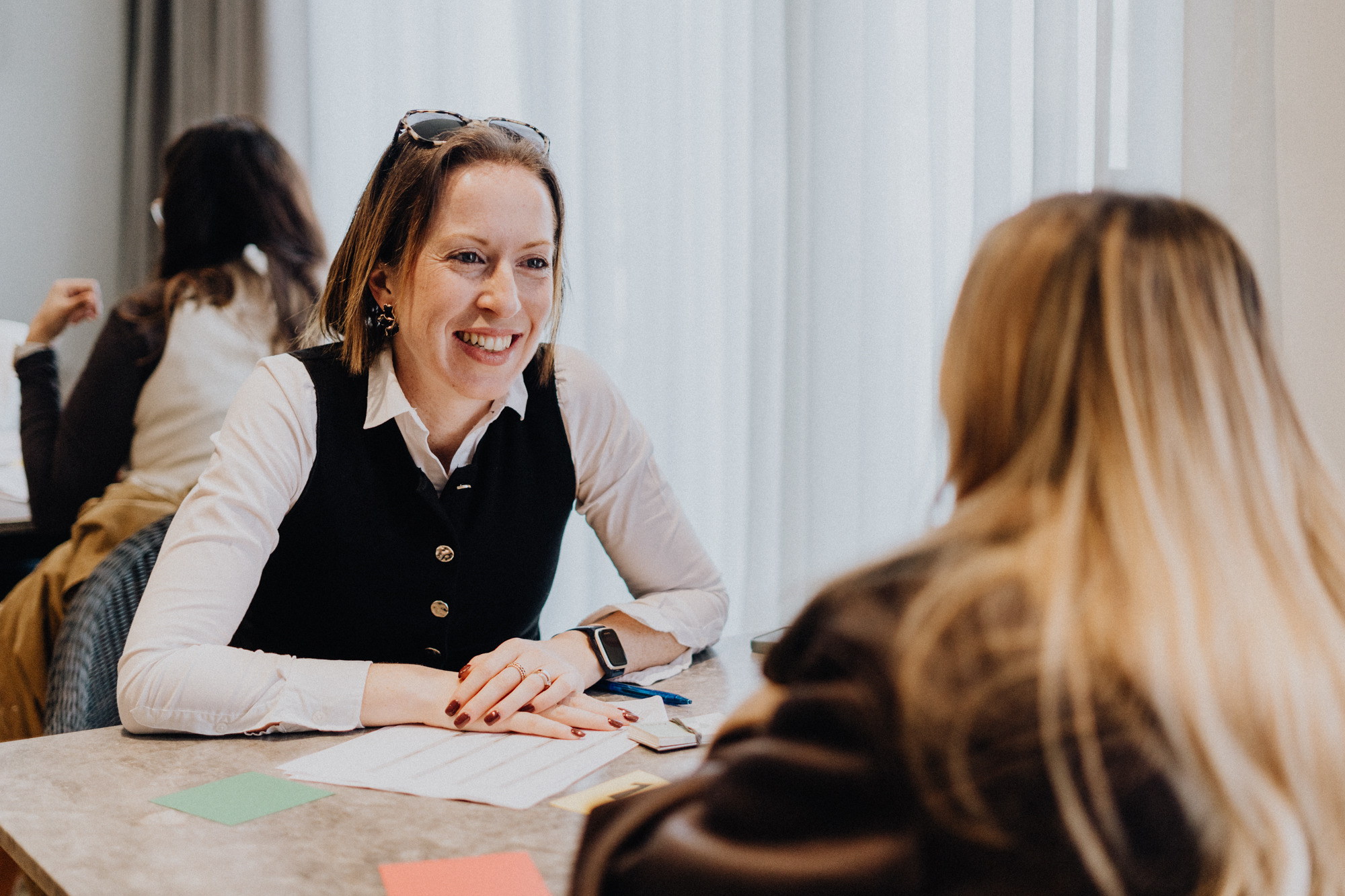

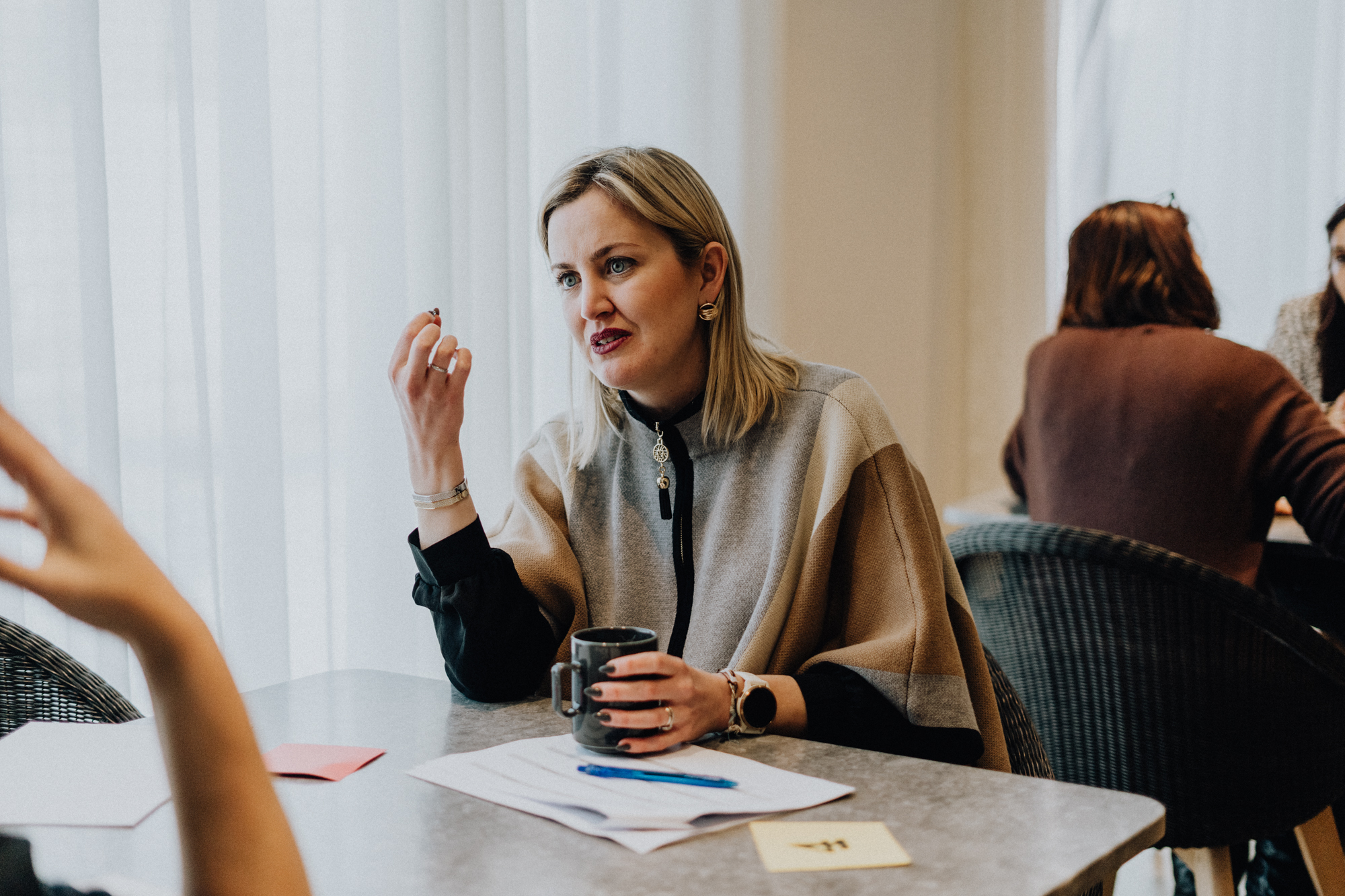
Sorry, the comment form is closed at this time.